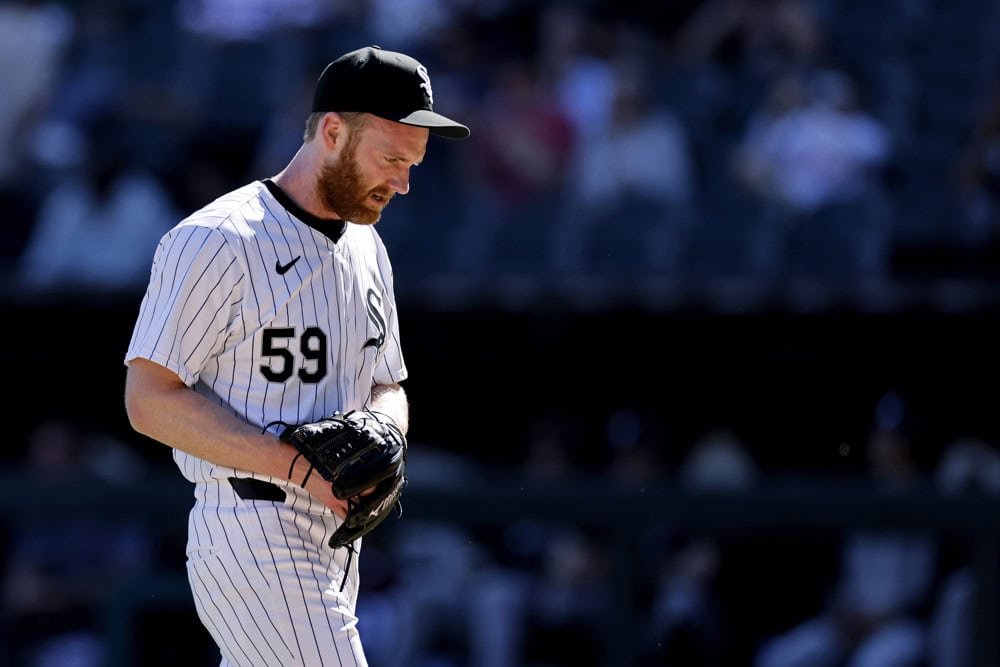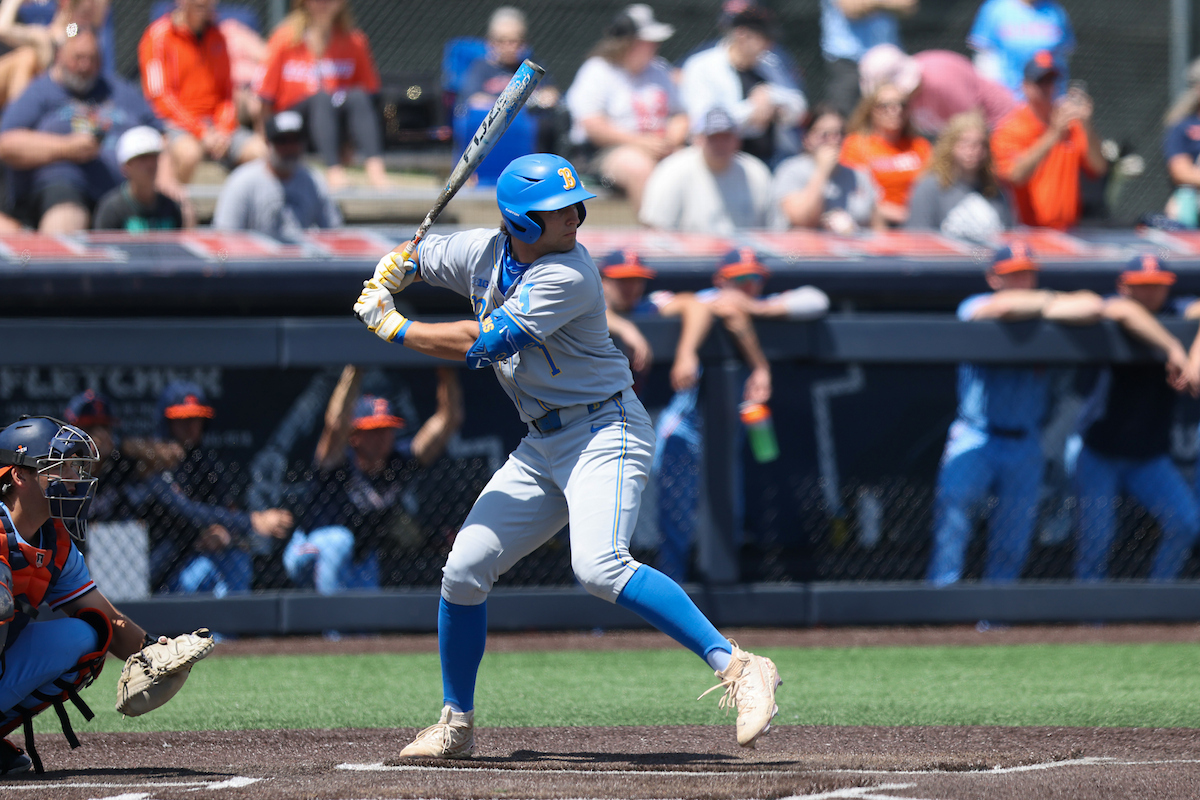The White Sox designated John Brebbia for assignment on Tuesday, which not only closed the book on their second-biggest signing from last winter, but the entire White Sox Opening Day bullpen.
Brebbia had been the last man standing, though more to his failure than his success. Had he lived up to his $5.5 million contract, he would've found himself on a contender at the trade deadline. Instead, he gave up 16 runs over his final 16⅓ innings, and now he'll wait to see if some team dredging for any righty-handed reliever of note will buy into a still-respectable strikeout-to-walk ratio.
With Brebbia gone, none of the White Sox's Opening Day relievers are on the 26-man roster, even though they gave themselves an extra chance by carrying nine relievers at the start of the season.
- Tanner Banks -- Traded
- John Brebbia -- DFA'd Tueday
- Deivi García -- DFA'd in April, outrighted in May
- Tim Hill -- DFA'd in June
- Michael Kopech -- Traded
- Jordan Leasure -- Injured
- Dominic Leone -- Injured
- Bryan Shaw -- DFA'd in April
- Steven Wilson -- Injured
There's no shame in a rebuilding team losing relievers by trade -- that was the point in picking up Brebbia, certainly -- but even then, the circumstances surrounding the Kopech trade were depressing, as are the early returns from the three-team deal. That leaves Banks as the one reliever out of nine who met or exceeded expectations, whether in terms of performance or trade value.
Disappointment lay everywhere else. The three proven veteran relievers acquired by the White Sox in meaningful transactions all flopped. Brebbia's home run problems followed him from San Francisco to Chicago, Hill's strikeout rate continued its free-fall, and while Wilson was supposed to provide the immediate contributions in the return for Dylan Cease, he's spent most of the year fighting mechanics and injury.
Chris Getz tried to supplement them with live young arms, but while Leasure looked promising through a month and a half, he gave up 17 runs over his last 10⅔ innings before going on the IL with a shoulder impingement, and he said those two developments were unrelated. That's still more than Prelander Berroa has offered, because he's been walking a batter an inning for Charlotte since late June.
They even chose poorly -- or were extremely unlucky -- with the non-roster invitees. The White Sox would probably love to have Jake Cousins and his 1.80 ERA and 40 strikeouts over 30 innings, but they traded him to the Yankees for cash considerations at the end of March. Jesse Chavez has a sub-3.00 ERA over 40 games as a 40-year-old with the Braves, but he was among the last cut. They instead rolled with Leone and Shaw to immediately ugly results, although Justin Anderson and Chad Kuhl eventually gave the Sox from value from this field.
Even though we knew full well before the season that the bullpen would test the new administration's talent evaluation and problem-solving abilities, it's hard to imagine a worse outcome for Chris Getz's first attempt at building a relief corps. It's also hard to imagine a worse outcome for Getz's first attempt at building a lineup. Together, they've blended as well as bleach and vinegar, and it's the leading reason why the White Sox are on pace to set the modern MLB record for losses by a comfortable margin.
There's a temporary silver lining from the wreckage, in that if the White Sox want to use the bullpen to audition some erratic pitching prospects who are already on the 40-man -- Jake Eder, Jairo Iriarte, Nick Nastrini and/or Ky Bush -- they'll have plenty of ways to accommodate them even after using the one expanded roster spot for September.
Still, after years of watching Rick Hahn over-invest in the bullpen to the detriment of the parts of the roster that actually build leads to protect, I'd hoped that Getz's approach would highlight the folly in devoting so much attention to the most volatile of positions. Instead, these results show why teams seek comfort in veterans with track records, even if there's no guarantee of getting what they pay for.
It may not matter much in the short term, because a successful 2024 White Sox bullpen would've been dismantled just as thoroughly as the awful one. If the White Sox want to get better faster, however, it sure would help if they could figure out how to source productive relievers from places besides the second tier of free agency. There's no faster way to create trade assets where none previously existed, pitching development is supposed to be the closest thing they have to an organizational strength, and if the Sox ever reach the point of contending again, developing and refurbishing relievers frees up tens of millions of dollars to direct to positions of greater value. I'd just hold off on speculating about Getz repeating Hahn's mistakes, because he'll have his hands full learning from some of the choices he's made this year.






